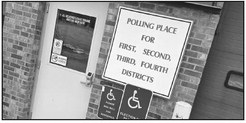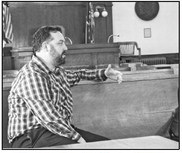Expand nomination window for local elections


Star News
Editorials
The state of Wisconsin needs to give residents a larger window of time to decide to run for city council, municipal board and school board positions.
Currently, state residents have from the beginning of December until just after New Years Day to circulate and return nomination papers in order to appear on the April ballot.
The month between Thanksgiving and New Years is a chaotic whirlwind of community events, Christmas programs, holiday celebrations, family commitments, not to mention it is often the timing of the first wave of nasty winter weather in the state.
At the same time, the state’s longstanding tradition of sending out property tax bills to arrive in the mail along with presents and cards just days before Christmas seems orchestrated primarily to make residents annoyed at getting yet another bill and wanting to do something about it. Given the accounting and billing technology that has been commonly available for decades, the fact that property taxes continue to be billed in a lump sum once a year is due primarily to political inertia and that property tax anger, however misplaced, makes for good politics at the state level.
Even if someone gets their property tax bill and thinks they should be getting more bang for their local tax dollars, there is a small window of opportunity to canvas their neighborhoods and get the signatures needed to get on the ballot. In addition, public offices, like all other places of business, often have shortened or adjusted hours over the holidays, making getting the necessary nomination forms a bit of a challenge for people who work full time jobs.
An easy way to address this problem is to extend the nomination period until the last business day of January to match when the first half of property taxes must be paid. The state should keep the deadline for incumbents announcing non-candidacy at the end of December.
This would give residents time to see if a seat will be open and to have weeks, rather than days to decide to run and to circulate papers. Communities that hold caucuses for municipal boards already have an extended period of time to decide to run for office.
The justification for the early January deadline has been so that if there is an over-abundance of candidates a primary can be held around Valentines Day. The reality is the February primary is largely a joke that wastes time and taxpayer money with only a very small percentage of voters taking part. A better option would be to eliminate this primary and send all eligible nominees to the spring general election under a ranked choice voting system or runoffs if no candidates received a majority.
These changes would allow for greater engagement of residents in their local governments and encourage more people to run for office while saving taxpayer money in the process. The system, as it currently stands, is rigged to give overwhelming advantage to incumbents and their hand-picked successors while making it difficult for working families to get involved with local government.
A change is needed to give all residents a greater opportunity to run for local elected office




